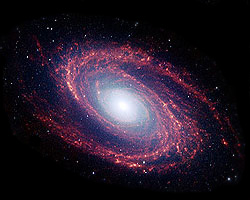Our nation faces
a grand opportunity.
Humanity faces a grand opportunity.
In 2004, scientists feared the
asteroid Apophis 99942 was on an April 13, 2029 collision course
with the Earth. Later observations predict a 2029 near miss but a
possible Earth impact in 2036. Even if it misses us again it will
return every seven years, until some day our luck will run
out. Small as asteroids go (only 1000 feet wide), a land strike
would still devastate an area the size of Connecticut. But an ocean
strike is much more likely. The resulting tsunami will destroy
coastal communities around the globe — a hundred million lives lost,
a trillion dollars damage.
But we don't have to leave our fate to
chance.
By acting years in advance, several
technologies are available that will allow us to deflect an incoming
asteroid. But a simple deflection merely postpones the problem,
giving it to our children to solve.
There is a smarter choice.
We have the technology to capture into Earth
orbit any medium to small asteroid that passes sufficiently close to
the Earth at a relatively low velocity, as Apophis will do on
Friday, April 13th, 2029. During such a close approach, tiny orbital
changes are greatly amplified by the slingshot effect of the Earth's
gravity. This enables us to effect orbital changes far beyond our
direct capabilities using today's rocket technologies. I describe
the concept in my blog post,
Capturing Apophis.
Capturing Apophis into a stable Earth orbit
removes it from being a threat and turns it into a resource.
This opportunity to capture an asteroid into Earth orbit is
something humanity should not miss. Capturing Apophis would not be
easy, and could not be accomplished in a single step. But it is
possible using existing technologies, and with sufficient care, it
could be accomplished safely (at least more safely than leaving our
fate to chance).
We can spend a few billion, and yield a
resource worth perhaps a trillion dollars: 46 million TONS of
oxygen, iron, silicon, aluminum, water, carbon, and other ores, conveniently
located in Earth orbit. Resources which can be used to create
solar power satellites without having to boost all that mass
from the surface of the Earth. Resources that can be used to
lower the cost of space exploration ten-fold. Resources that
can be used to build permanent self-sustaining habitats in
space, large enough to house tens of thousands of colonists
in habitats spinning for gravity and with outer walls thick enough
to protect the occupants from radiation and meteor impacts equally
as well as Earth's atmosphere protects us down here.
President Biden needs a grand goal for NASA
and the nation in the next decades, one comparable to Kennedy's "We
choose to go to the moon in this decade."
I believe that capturing Apophis is
such a grand goal, with benefits to global energy and
warming (via those solar power satellites), and to
space exploration, and to permanent, self-sustaining
habitats in space. I have written the committee responsible
for gathering ideas, but I fear my small voice is lost among the
millions of suggestions they've received.
If our government (and/or NASA) fails to
act, perhaps another nation (such as China) will take the reigns.
After all, capturing Apophis would be a huge triumph for any space
faring nation. Or perhaps a nation such as Kuwait will take on
this initiative: the nation that captures Apophis and uses it to
build a constellation of solar power satellites will own the energy
future of the world - and what better use of the oil dollars they've
pocketed. Or perhaps a large corporation will take the challenge, or
a coalition of billionaires! Global Power & Light. Disneymoon. The
Apophis Hyatt.
If you like the idea of advancing human
space flight, of sending cheap solar energy to Earth, of helping
global warming, please share the word. Tell President Biden
that he holds the key to the future of humanity in space, that
capturing Apophis is feasible and solves many problems in one step.
And it is a lot simpler and less expensive than sending astronauts
to Mars, or landing them on the Moon.
For additional information, see:
|





